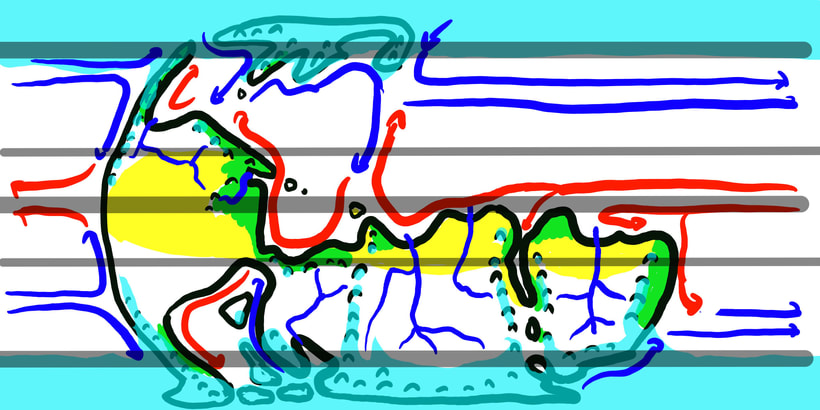(from my Patreon)
0 Comments
Just a silly little idea. If English's non-phonetic spelling is due to (mostly) not keeping up with sound changes in the past 600 years, what would happen if we pushed its origins back further? What if an Ulfilas-like missionary wrote a Bible in his dialect of Proto-West-Germanic in the fourth century and his work *really* caught on? To the point where modern Germanic languages are still written using his Latin spellings?
Aside from that, the history of this world parallels ours. Here is English as we speak it, but not as we write it. Unsar Fader, hwarh irht in hebune, hailagodaz biwje thin namo Thin kuningadom kweme Thin willjan biwje dan An erthu alls' hit ist in hebune. Imagine school children having to learn that a <b> between vowels is pronounced as /v/, and all the fiddly non-pronounced word endings. Then, they'll have to remember that in "hailagodaz," the i, middle a, g, and ending -az are all silent! Why is /art/ spelled with an <i> and a <rh>? You just have to memorize it. Then of course some good-hearted person will suggest a spelling reform. What if we at least omitted all the silent letters? U'r Fader, hwa' irht in hebun' Hail'od' bi' thi' nam' Thi' ku'ng'dom kwem' Thi' will' bi' dan An erth' a's' 'it is' in hebun' Much better. |
AuthorDaniel M. Bensen Archives
March 2024
Categories
All
|


 RSS Feed
RSS Feed